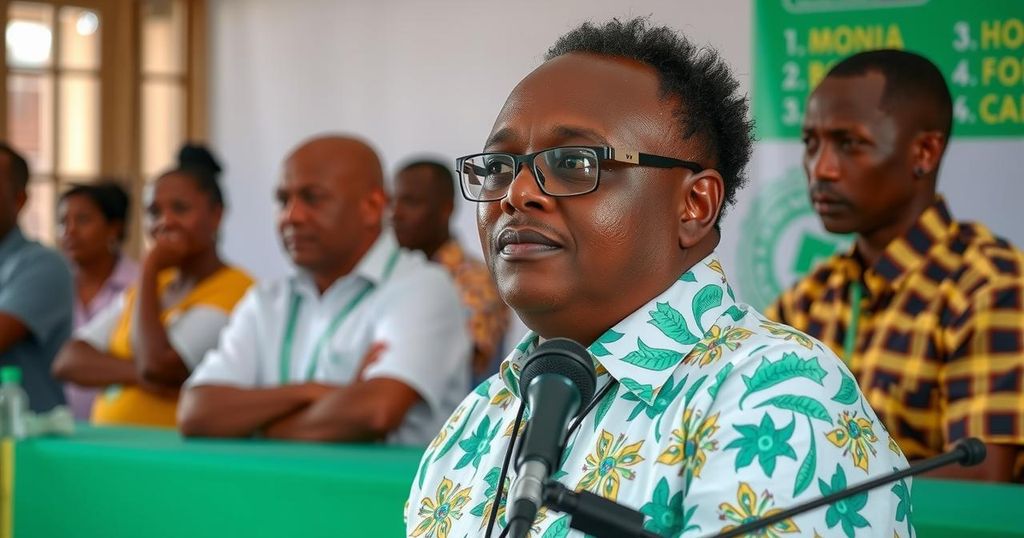World news
AFRICA, AKUFO - ADDO, BAWUMIA, DAKAR, ELECTION, GHANA, GOVERNANCE, GOVERNMENT, JOHN DRAMANI MAHAMA, MAHAMA, MAHAMUDU BAWUMIA, N. D. C, N. P. P, NANA AKUFO - ADDO, NATIONAL DEMOCRATIC CONGRESS, NEW PATRIOTIC PARTY, PRESIDENTIAL ELECTION 2024, SENEGAL, SUCCESSION PLANNING
Marisol Gonzalez
0 Comments
Ghana’s Upcoming Election: A Critical Decision in Troubling Economic Times
Ghanaians are set to vote in a critical election on December 7, amid extensive economic difficulties. Former president John Mahama aims to reclaim his position against current vice president Mahamudu Bawumia. The electorate, particularly the youth, is dissatisfied with economic conditions and environmental issues. Polls indicate Mahama may lead, with high turnout expected. The results will be revealed starting election day, with the possibility of a runoff if majority is not achieved.
Ghana is poised for a significant election on December 7, where voters face a pivotal decision between former president John Dramani Mahama and current vice president Mahamudu Bawumia. The election occurs amidst a prolonged economic crisis, characterized by rampant inflation, soaring national debt, and rising unemployment. Ghana’s youth, particularly first-time voters, express discontent over government inaction regarding economic hardships and environmental degradation, spurred by illegal mining activities. The political landscape is dominated by the ruling New Patriotic Party (N.P.P.) and the opposition National Democratic Congress (N.D.C.), both having a history of governance since 1992. Analysts predict a high voter turnout, with initial polls favoring Mahama, despite Bawumia’s efforts to distinguish his approach to revitalizing the struggling economy. Polling stations will close at 5 p.m. on election day, and results will begin to be announced shortly thereafter, with potential for a runoff if no candidate secures a majority.
Ghana, a significant African nation in terms of geopolitical influence and democratic stability, is currently grappling with profound economic challenges. Under the leadership of President Nana Akufo-Addo, economic conditions have deteriorated significantly, prompting widespread public discontent. With high inflation rates and rising poverty levels, particularly affecting the youth, the populace is yearning for effective leadership to remedy these crises. The election features two candidates from opposing historically dominant political parties, with both aiming to address the pressing issues faced by the nation.
As Ghana approaches its electoral decision, the ramifications will extend beyond the immediate political landscape, as the outcome will determine how effectively the elected leader can tackle the country’s urgent economic difficulties. The participation of a motivated electorate, particularly younger voters, may shape a new political direction. The focus on economic recovery, youth engagement, and environmental accountability will likely dominate the discussions as the nation heads towards potential change in leadership.
Original Source: www.nytimes.com




Post Comment